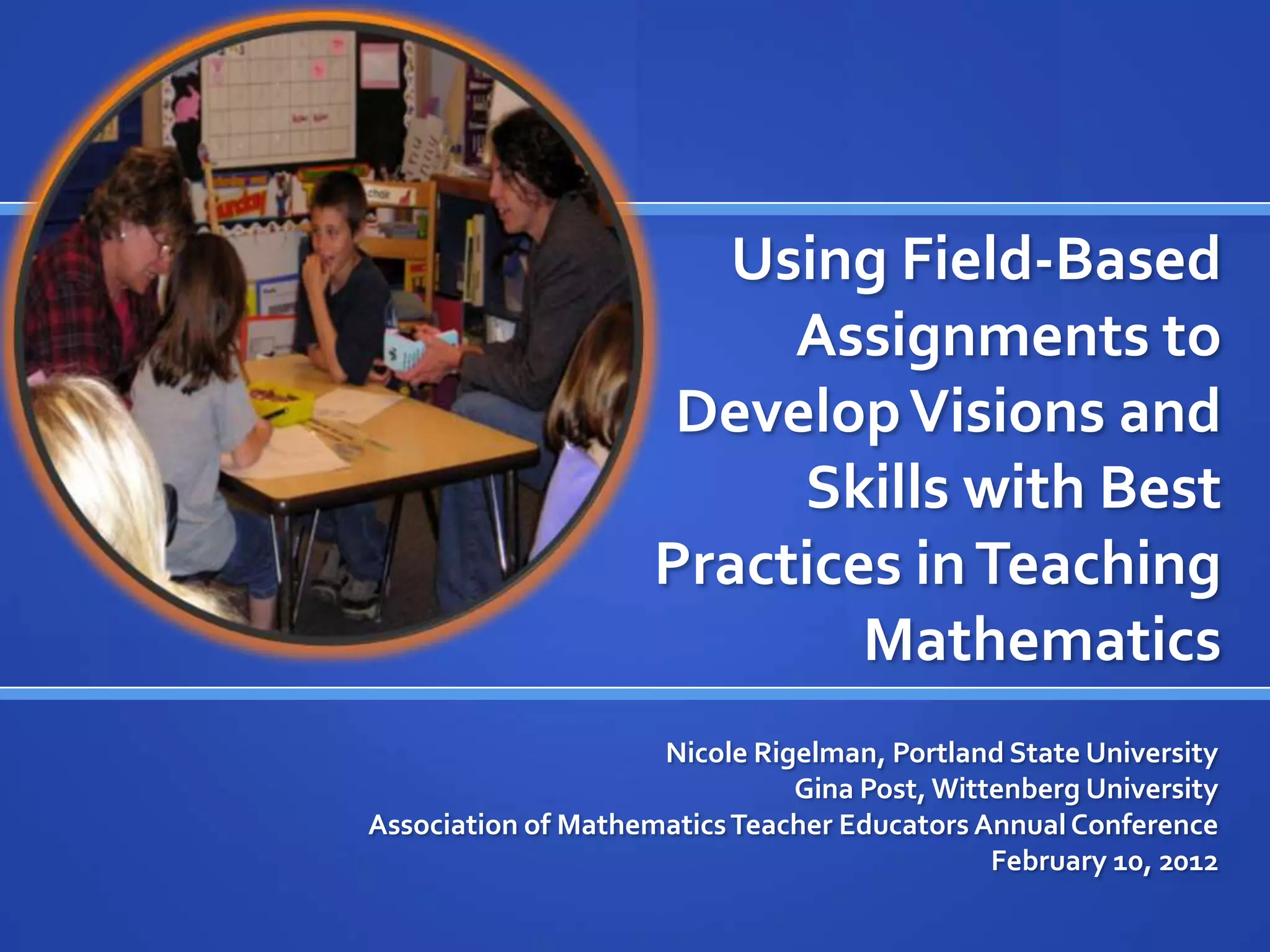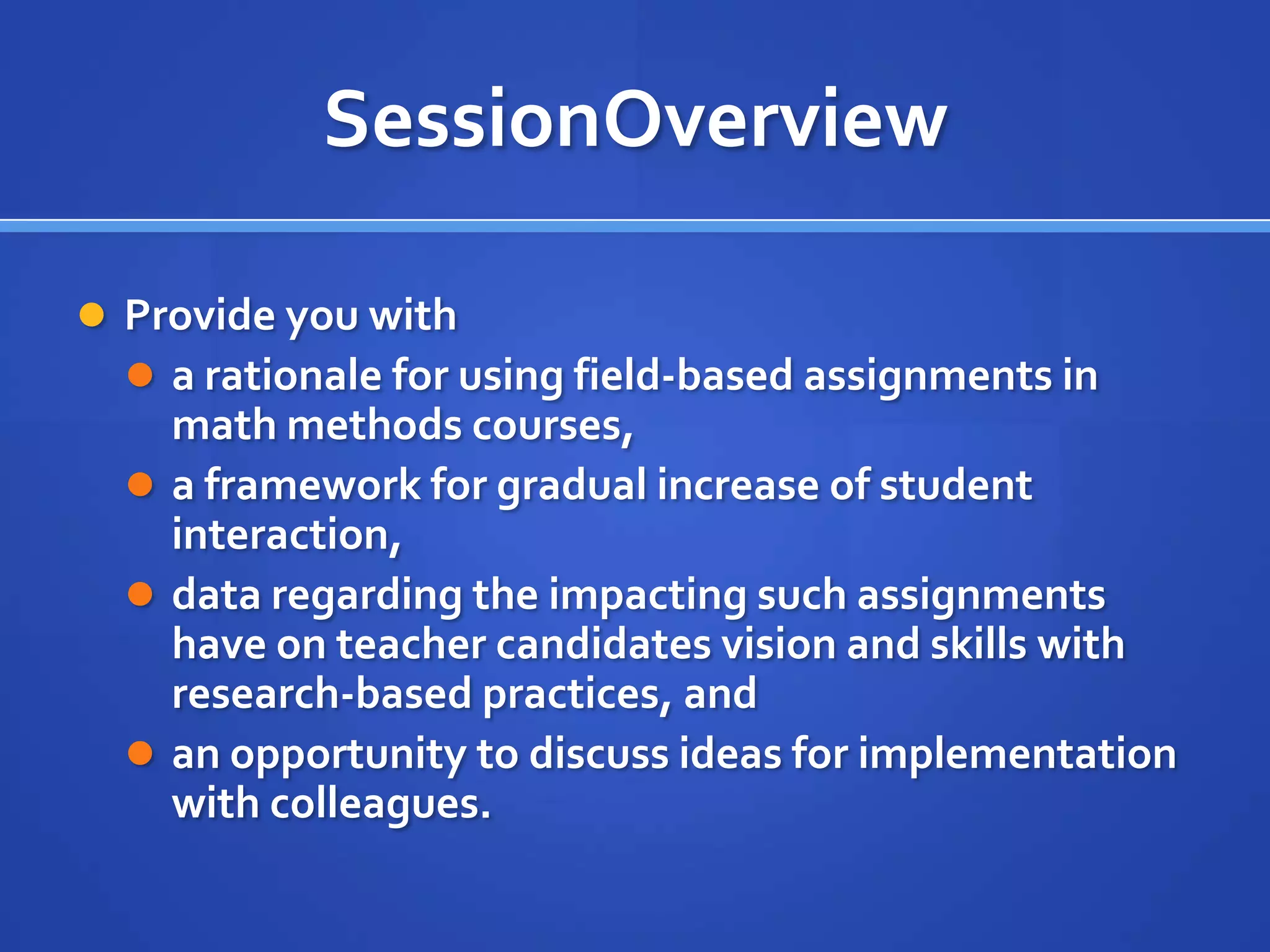Using field-based assignments in math methods courses can help address the disconnect teacher candidates often experience between their prior math learning, developing understanding of learning theories, and clinical experiences. The document discusses how assignments like observations, interviews, and teaching help unify these experiences when supported by coursework. However, research shows methods courses may not be long enough to affect lasting change. Therefore, it is important to understand how field-based assignments specifically support teacher candidate learning and practice. The presentation aims to provide a rationale for these assignments, examples used, and their impact on developing teacher candidates' visions and skills in teaching mathematics.








![“Classroom discussion based on students’ own
ideas and solutions to problems is absolutely
‘foundational to children’s learning’” (p. 21). I
believe that students need to be guided, but also
need to have time to explore concepts on their own.
This allows for independent learning and can result
in more confident students. When students are
given opportunities to work out problems on their
own, they are more likely to remember.
[I] noticed that as I am teaching I like to
guide students to the correct answer,
which is a bad trait. I need to help students
justify their answer, so that they become
confident in their mathematical skills.](https://image.slidesharecdn.com/amtefieldbasedassgn2012-140111192636-phpapp01/75/Using-Field-Based-Assignments-to-Develop-Visions-and-Skills-with-Best-Practices-in-Teaching-Mathematics-9-2048.jpg)

![In the video, I noticed myself helping too
much. It’s so hard not to! I realized that I
have to back off and give the student
some space to see what they are doing.
Some things may take a while to sink in, I
can’t keep pushing. I also tried to
encourage her too much.
Overall I learned a lot from [the Inquiring to
Understand] project and also learned that I have a lot
more to learn about this teaching technique. I saw a
lot of connections from our readings and classroom
discussions to this project. I would like to get to learn
more about how to introduce and “teach” a new
operation or skill using this technique because I’m still
really confused about how that would work.](https://image.slidesharecdn.com/amtefieldbasedassgn2012-140111192636-phpapp01/75/Using-Field-Based-Assignments-to-Develop-Visions-and-Skills-with-Best-Practices-in-Teaching-Mathematics-11-2048.jpg)




